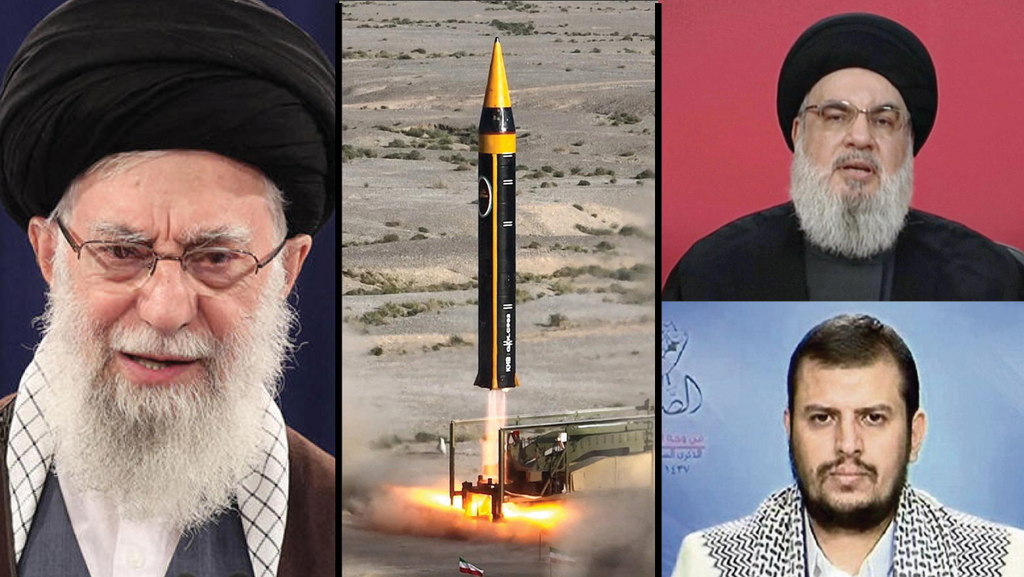Getting your Trinity Audio player ready...
French news outlet AFP reported on Friday the Iranian “Axis of Resistance” is mulling ways to retaliate against the assassination of Hamas leader Ismail Haniyeh in Tehran, which it blames on Israel, via separate attacks rather than the estimated joint assault alongside its proxies in the Middle East.
Despite Iranian threats of harsh retaliation for the Haniyeh’s assassination, Hezbollah promising revenge for the killing of its senior commander Fuad Shukr in Beirut, and the Houthi rebels in Yemen waiting to strike after the IDF attack on Hodeidah’s port — the nature of the expected attack on Israel remains unclear.
2 View gallery


Iranian Supreme Leader Ali Khamenei, Iranian missile, Hezbollah leader Hassan Nasrallah, Houthi leader Abdul-Malik al-Houthi
( Photo: Alex Kent / GETTY IMAGES, Al-Manar TV/Handout via REUTERS, Reuters, Screengrab)
A source close to Hezbollah told the French news agency that Iranian representatives and their proxies on Thursday discussed their "next steps" at a summit held in Tehran. "Two scenarios were discussed: a joint attack by Iran and its allies, or a separate response from each side," The source, who was briefed on the meeting’s details, said.
Meanwhile, a security official told Hezbollah-affiliated Lebanese newspaper Al-Akhbar that the response to Haniyeh's assassination would not come solely from Iran but would be a coordinated one involving all members in Iran’s sphere of influence. "We’re currently consulting and coordinating with our allies in the axis," the official said.
Hezbollah's Secretary-General Hassan Nasrallah also spoke in his speech on Thursday about two possibilities for retaliation – a coordinated response with Iran or separate responses from the axis members, but his words suggested that no decision had been made at this point.
"Because they picked a fight with everyone, they don't know where the response will come from," Nasrallah said in a speech delivered as part of Fuad Shukr's funeral, considered to be his right-hand man. "The response will come, whether it will be divided or simultaneous," he added, stressing Hezbollah and other axis members are preparing a "real rather than a flashy response."
2 View gallery


Prime Minister Benjamin Netanyahu, U.S. President Joe Biden
(Photo: REUTERS/Evelyn Hockstein, AP/Debbie Hill)
Although Nasrallah declared that this was a "new phase" in the confrontation and promised that the Israelis "will cry" over the recent assassinations, he also noted Israel's response would determine whether escalations would lead to war.
Prime Minister Benjamin Netanyahu promised that the Israeli response to any aggression against it from any arena would be severe, though significant American pressure he faced to avoid a broad response to the previous Iranian attack in April may once again impact his decision on the matter.
A key factor in this context is expected to be the results of the anticipated retaliation, which Israel fears could come in the coming days. As in the Iranian attack in April, serious efforts are taking place to form an international coalition led by the U.S. to help Israel intercept drones and missiles in order to minimize potential damages.
However, it’s uncertain that moderate Arab states will agree to assist Israel against the upcoming attack, as they strongly condemn the assassinations publicly.



